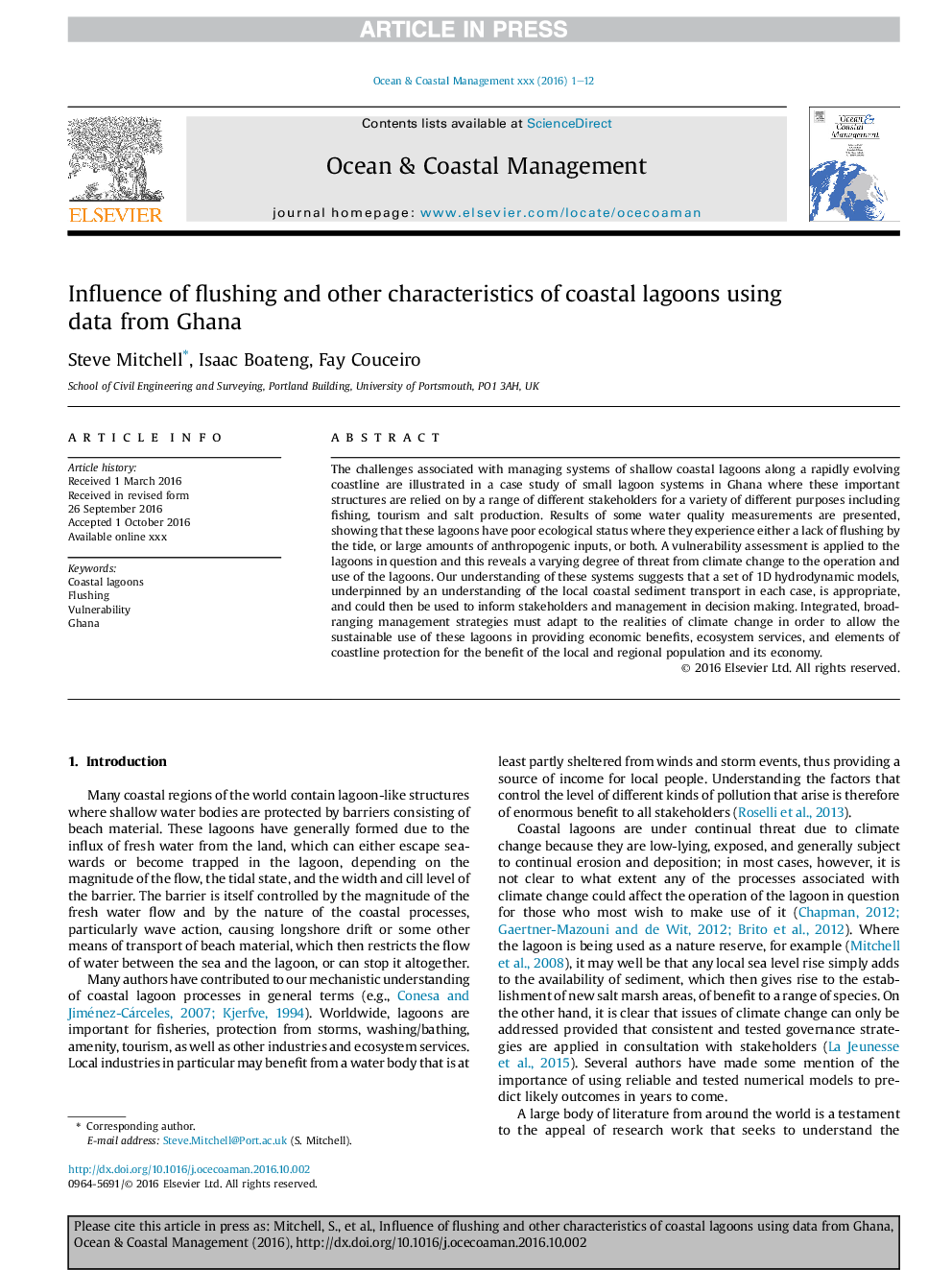| Article ID | Journal | Published Year | Pages | File Type |
|---|---|---|---|---|
| 5473773 | Ocean & Coastal Management | 2017 | 12 Pages |
Abstract
The challenges associated with managing systems of shallow coastal lagoons along a rapidly evolving coastline are illustrated in a case study of small lagoon systems in Ghana where these important structures are relied on by a range of different stakeholders for a variety of different purposes including fishing, tourism and salt production. Results of some water quality measurements are presented, showing that these lagoons have poor ecological status where they experience either a lack of flushing by the tide, or large amounts of anthropogenic inputs, or both. A vulnerability assessment is applied to the lagoons in question and this reveals a varying degree of threat from climate change to the operation and use of the lagoons. Our understanding of these systems suggests that a set of 1D hydrodynamic models, underpinned by an understanding of the local coastal sediment transport in each case, is appropriate, and could then be used to inform stakeholders and management in decision making. Integrated, broad-ranging management strategies must adapt to the realities of climate change in order to allow the sustainable use of these lagoons in providing economic benefits, ecosystem services, and elements of coastline protection for the benefit of the local and regional population and its economy.
Related Topics
Physical Sciences and Engineering
Earth and Planetary Sciences
Oceanography
Authors
Steve Mitchell, Isaac Boateng, Fay Couceiro,
